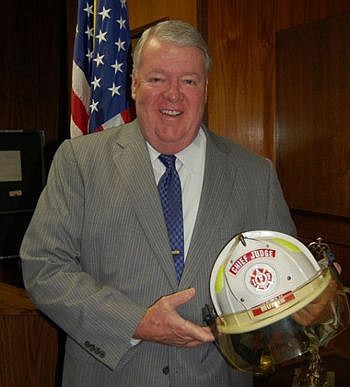
Most of the world found out Michael Dunn’s fate last week through video, audio and print coverage of the high-profile trial.
Now several local media outlets are suing for access they say they didn’t have during the trial.
The Florida Times-Union, WTLV TV-12, WJXX TV-25, WJXT TV-4, WJAX TV-47 and WFOX TV-10 have filed suit in federal court against 4th Circuit Chief Judge Donald Moran. There are two complaints claiming administrative orders Moran issued for “cases of extraordinary interest” like the Dunn trial infringed upon First Amendment rights and were unconstitutionally vague.
Moran’s administrative orders issued Dec. 19 and April 23 prohibit media from interviewing or filming anyone inside the Duval County Courthouse with the exception of the media room and other specifically designated areas. That includes both traditional cameras and cellphone cameras.
The courthouse’s hallways and atrium are off limits to media interviews, which Moran explains in a Jan. 16 letter to attorney George Gabel, who is representing the media contingent.
The front entrance and atrium, Moran wrote, is the only entrance for the public and employees and also is the security checkpoint.
“The world we live in today is different than it was in 1976,” Moran writes, referencing a case cited by Gabel in the lawsuit.
The atrium also serves as a place where people stand in line to pay misdemeanor fines and traffic tickets. All told, Moran said, the atrium is “not a safe or secure area” for such interviews.
In the case of the Dunn trial, a staged media area was established in a courtroom across the hall from where the trial was being conducted.
But, in an Aug. 19 memorandum, Moran said there “apparently … had been some misunderstanding” about cellphones for filming in the hallways, which isn’t permitted.
A TV photographer was stopped the day before by a member of the Jacksonville Sheriff’s Office from filming in the hallway with a camera or cellphone.
Filming, Moran said in the memo, has caused crowds to gather, which can lead to hallways blocked and “confrontational, emotionally-charged arguments, involving court cases.” The disruptions can cause public safety issues, he said.
The suit contends Moran “failed to consider less restrictive means” for his goals.
“If someone becomes confrontational due to newsgathering activity, he can be removed; if a crowd gathers due to an interview, it can be instructed to disperse; and if a media representative’s actions threaten the fair administration of justice in a particular case, the presiding judge can take protective measures,” the suit contends on the infringement count.
On the second count, the term “interview” is unconstitutionally vague, the suit claims.
Court personnel, it says, “lacked guidance” and prevented media from entering into casual conversations, which hasn’t applied to lawyers, police officers, investigators or members of the general public.
Informal conversations by media members in restricted areas “build trust and relationships,” the lawsuit said, and asking journalists to go to a designated area makes interviews “difficult … if not impossible.”
The suit says media members have self-censored for fear of being sanctioned. Penalties for breaking the rules include confiscation of equipment and/or being barred from the courthouse.
The plantiffs are asking to prevent Moran’s administrative orders from being enforced and for attorney fees and costs.
@writerchapman
(904) 356-2466